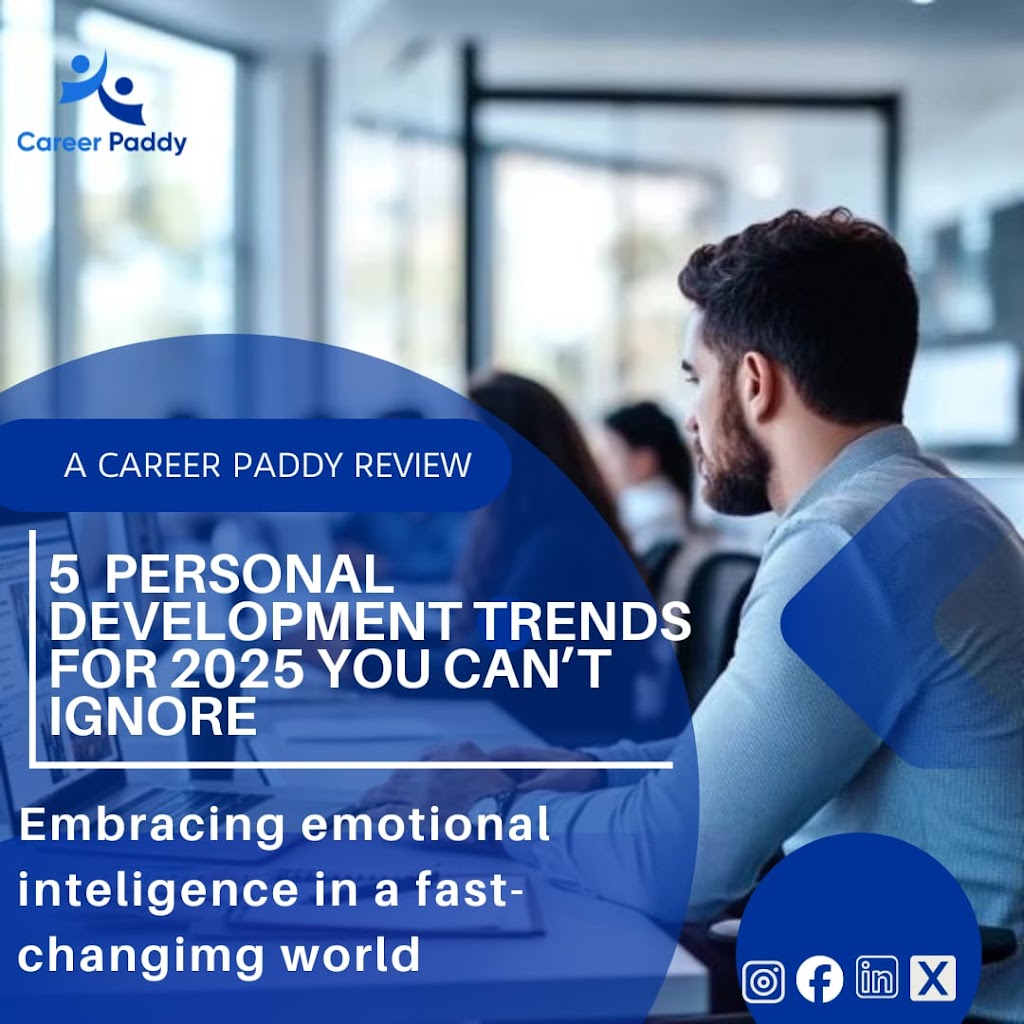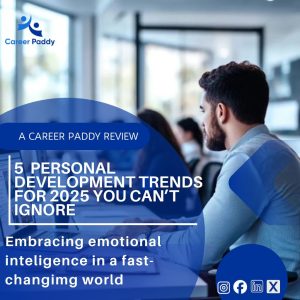Cultivating Emotional Intelligence for Future Success
Sophia’s Journey
Sophia had always been the type to check all the right boxes—high grades,
impressive credentials, and a solid job in a leading organization. Yet, despite
her professional accomplishments, she often felt like she was drowning in an
ocean of workplace stress and interpersonal conflicts.
Her career demanded more than technical know-how. Meetings felt tense,
feedback was hard to swallow, and team collaborations drained her energy rather
than fueling it. It wasn’t a lack of skill—it was something deeper. Then, one
day, while scrolling through her LinkedIn feed, she came across an article by Terence
H. Clarke, titled “5 Personal Development Trends for 2025
You Can’t Ignore” (terencehclarke.com).
One trend in particular stood out to her: Emotional Intelligence
(EI) as the cornerstone of personal and professional growth.
Something clicked. Sophia realized that while she had spent years perfecting
her technical abilities, she had never invested in understanding her own
emotions or those of the people around her. That day, she made a decision—to
build her emotional intelligence and transform the way she worked and lived.
Why Emotional Intelligence is the
Game-Changer in 2025
The modern workplace is no longer just about what you know—it’s about how
you connect, adapt, and lead. As Clarke’s article highlights, emotional
intelligence is now one of the most in-demand soft skills, determining
how well professionals navigate relationships, resolve conflicts, and manage
stress.
Emotional intelligence is made up of four key components:
1. Self-Awareness
– Recognizing and understanding your emotions and how they impact your actions.
2. Self-Regulation
– Managing emotions effectively, staying calm under pressure, and making
rational decisions.
3. Empathy
– Understanding and relating to the emotions of others, fostering better
communication and teamwork.
4. Social
Skills – Building meaningful relationships, resolving conflicts, and
leading with influence rather than authority.
For professionals like Sophia, mastering these skills means transitioning
from merely surviving at work to thriving in both career and
personal life.
Sophia’s Transformation: Applying
Emotional Intelligence in Real Life
After reading Clarke’s article, Sophia took intentional steps to develop her
emotional intelligence:
·
Practicing Self-Awareness: She
started journaling about her emotions, identifying stress triggers, and
observing patterns in her responses.
·
Regulating Her Emotions:
Instead of reacting impulsively, she learned mindfulness techniques and
breathing exercises to stay composed.
·
Building Empathy: Sophia
actively listened in meetings, asked open-ended questions, and tried to
understand colleagues’ perspectives before jumping to conclusions.
·
Enhancing Social Skills: She
improved her communication by giving constructive feedback, recognizing team
contributions, and fostering a positive work environment.
These small but significant changes led to a remarkable shift in her
professional life. She felt more in control, her relationships
at work improved, and she became more confident in handling high-pressure
situations.
The Bigger Picture: Why Emotional
Intelligence Matters for Everyone
Sophia’s story is not unique. Across industries, emotional intelligence is
becoming the defining trait of successful leaders, high-performing teams, and
resilient professionals. Organizations are prioritizing EI in hiring,
leadership training, and team development because they recognize its impact on
productivity, innovation, and workplace harmony.
For professionals looking to stay relevant in 2025 and beyond, developing
emotional intelligence is no longer optional—it’s essential.
Final Thoughts: Your Personal
Development Blueprint
If Sophia’s journey resonates with you, it’s time to take action. Here’s
how you can start developing emotional intelligence today:
·
Practice mindfulness to improve
self-awareness and regulate emotions.
·
Seek feedback from colleagues
and mentors to understand how your emotions impact others.
·
Engage in active listening to
strengthen empathy and build meaningful connections.
·
Respond rather than react in
emotionally charged situations.
·
Invest in personal development resources
like books, workshops, or coaching sessions on emotional intelligence.
By embracing these practices, you’re not just preparing for career
success—you’re building a life that is more fulfilling, balanced, and resilient.
So, as we move into 2025, ask yourself: Are you ready to grow
emotionally as well as professionally?
You can also access soft skills that can help you balance your career on the CareerPaddy app
• Career Paddy App on Play Store
• Career Paddy App on Apple Store
Stay tuned for more analysis from CaeerPaddy
#EmotionalIntelligence #PersonalDevelopment
#CareerGrowth #FutureOfWork #LeadershipSkills #WorkplaceSuccess
#MindfulLeadership

